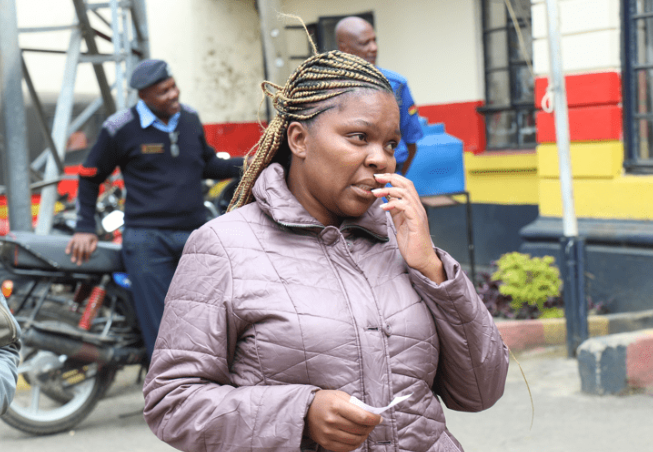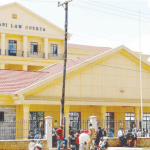Catherine Wanjeri, a reporter for Nakuru Kameme TV who was shot four times during the anti-government protests in July, is now fearing for her safety due to threats from unknown individuals. Wanjeri reported receiving intimidating phone calls from people pretending to be informants in the investigation into her shooting. Initially, she answered these calls, but she eventually stopped picking up numbers not saved in her contacts after the calls became relentless and threatening.
One caller, who claimed to know the police officer responsible for her shooting and his residence, warned her not to disclose their conversation. Speaking at the Nakuru Central Police Station, where she reported the threats, Wanjeri expressed concern that her movements were being monitored and that she was being followed during her trips to Nakuru for medical treatment.
“At one point, a caller asked me to meet him in order to give me information about the person who shot me and I simply told him to share the details with the police as it could help with investigations,” she said.
Wanjeri was shot four times in the thigh on July 16 as she covered the anti-government protests by Gen-Z in Nakuru Central Business District.
She was admitted at the Rift Valley Provincial General Hospital Annex to have the four rubber bullets that were lodged in the thigh removed.
A complaint against police brutality on journalists was launched and later referred to Independent Police Oversight Authority (IPOA) but the culprit in the matter have not been arrested close to two months later.
Yesterday, Wanjeri said she felt that some people were intimidating her in a bid to silence her and abandon the matter.
“I have contemplated abandoning the matter because I am afraid for myself and my family but the strength and support from Nakuru Journalists’ Association (NJA) and fellow journalists countrywide has kept me going” she said.
Wanjeri intimated that at one time, she had to share her fears with her doctor at PGH Annex when she realised there was always followed her to the facility, parked at the parking lot during her stay and would only leave when she left.
Nakuru Journalists’ chairperson, Joseph Openda wondered why the officer who shot Wanjeri was yet to be arrested and charged with the offence close to two months later.
“The officer is working, most probably armed and roaming the street thus further endangering the life of the affected journalist and witnesses in the matter,” he said.
Openda said IPOA claimed that it was waiting for a second report from the Directorate of Criminal Investigation after which it would hand over the case to Directorate of Public Prosecution for further action.
Wanjeri, who was wearing a jacket clearly labelled press while covering the protests, recounted the moments before she was shot.
“We were journalists from different media houses standing when I was shot…my mum had called me 7 minutes before I was shot to tell me that I should be careful,” she recalled.
Wanjeri gave an account of Tuesday’s protests in Nakuru and claimed that police officers had singled her out, as this was not an isolated case.
“Nobody would convince me that I was not a target, I had been hit with a tear gas canister but I did not report, I did not even escalate it, I showed my colleagues the scar on the same leg that I was shot at,” narrated the journalist.
Wanjeri was caught moments before being shot giving toothpaste to a police officer sitting in a police vehicle, believing it would help her cope with the effects of tear gas.
What followed was an officer in a police vehicle who shot at her the bullets struck her in the thigh.



